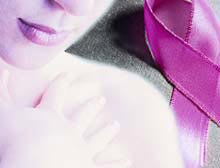 |
 |
 |
 Health & Beauty | October 2005 Health & Beauty | October 2005  
Drug Halves Breast Cancer Relapse Rate For Some
 AP AP


| | About 200,000 women are diagnosed with breast cancer each year in the US. |
Many doctors and patients are embracing a drug described as perhaps the most powerful cancer medicine in a decade, taking their cue from recent studies showing it can halve the risk of relapse for a very aggressive form of breast cancer.

Several experts used words like "revolutionary," "stunning" and "jaw-dropping" to describe the findings on the impact of the drug, Herceptin. Some even talked of a "cure" for a considerable number of women.

"The strength of the evidence is so overwhelming at this point that it would be almost impossible to withhold this drug from the appropriate group of patients," said Dr. Gabriel Hortobagyi, of the University of Texas M.D. Anderson Cancer Center. He is president-elect of the American Society of Clinical Oncology.

Others, while excited about the findings, said women who take the drug must be watched for years more to get a better idea how many will benefit. "I think it's way too soon to talk about a cure," said Debbie Saslow, director of the breast cancer section of the American Cancer Society.

The drug, Herceptin, targets only diseased cells and is already used for advanced cancer. But in three studies involving thousands of women with early-stage disease, it cut the risk of a relapse in half.

The drug, made by Genentech, does not help everyone, though. For one thing, it is only for the estimated 20 percent of patients whose breast tumors churn out too much of a protein known as HER2. In the recent studies, the drug was used along with standard treatments, including surgery and chemotherapy. Even then, some patients relapsed.

Still, such benefits haven't been seen for a cancer drug since research a decade ago demonstrated the extraordinary strength of tamoxifen. Both drugs home in on cancer cells while sparing healthy ones - part of the class of "targeted" drugs.

The Herceptin studies were published Thursday in The New England Journal of Medicine. One was an international study sponsored by Herceptin's European marketer, Roche. The others were North American studies sponsored by the National Cancer Institute and partly funded by Genentech. The researchers followed a total of more than 6,500 women with early-stage breast cancer.

In the first study, 220 women taking standard therapy for a year either developed breast cancer again, showed other kinds of tumors, or died. Only 127 did when Herceptin was added.

The two other studies reached similar findings in their combined results. At three years, patients on Herceptin showed a disease-free survival rate that was 12 percentage points higher than without it.

Herceptin appears to have "changed one of the most worrisome kinds of cancers into one that may have a relatively good prognosis," said Dr. Ed Romond, one of the North American study researchers at the University of Kentucky.

The medical community began adopting the drug for early breast cancer after details of the three studies were publicized last spring at a medical conference. American sales of Herceptin leaped by two-thirds, to $215 million, in the three months ending October 1, compared with the year's first quarter, according to Genentech.

The San Francisco-based company intends to apply to the U.S. government to add early-stage cancer use to Herceptin's label, company spokeswoman Colleen Wilson said. But doctors are already free prescribe the drug for early breast cancer on their own authority.

About 200,000 women are diagnosed with breast cancer each year in this country, and 40,000 die. About 30,000 American women will probably be taking Herceptin for breast cancer within a couple of years, curing perhaps 7,000 who would otherwise relapse, some doctors predicted.

However, doctors cautioned that some women get better without Herceptin, especially when there is little evidence that the cancer is spreading within the breast. Also, a small number taking the drug suffer heart failure.

A year of Herceptin could cost $48,000 even at wholesale prices.

Barbara Brenner, who was diagnosed with breast cancer in 1993 and runs the San Francisco-based advocacy group, Breast Cancer Action, said it's misleading to talk about a cure at this time.

"I have no idea what's going to happen to me. This is a disease that can and does happen at any time. It's not five years - and a cure," she said.

It remains unclear whether Herceptin should be taken with chemotherapy drugs or afterward, and whether it can help even years later. Herceptin appears so potent, some researchers said, that it raises the possibility that targeted drugs will someday let patients skip chemotherapy, radiation and surgery, which destroy both healthy and diseased tissue. | 
 | |
 |



